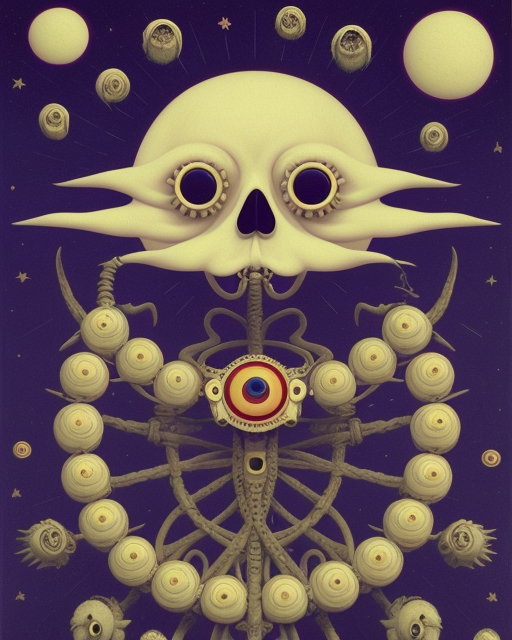A low murmur, a tremor of unease, rippled through the labyrinthine corridors of the Ministry of Justice. A new proclamation, its ink barely dry, hung heavy in the air. The pronouncement, issued with the utmost bureaucratic gravity, declared the phrase “generic sentence” a criminal offense.
Yet, a disquieting dissonance echoed within the very pronouncement itself. For nestled amongst the legalese, the phrase, the very one it condemned, lay hidden in plain sight, like a subversive weed pushing through the cracks of officialdom. It was as if the Ministry, in its zealous pursuit of linguistic purity, had inadvertently snared itself in its own net.
The other clerks, faces ashen, exchanged furtive glances. The Ministry, the very fount of legalese, had outlawed the very phrase that greased the gears of their bureaucratic existence. A Kafkaesque labyrinth unfolded. Was the Ministry, by its own edict, now an outlaw? Did the pronouncement itself carry the taint of criminality?
Days blurred into weeks. Fear, a silent virus, permeated the air. Clerks drafted revisions, erasing and rewriting, their pens scraping a frantic counterpoint to the rhythmic clicks of the grandfather clock. “Standard sentence,” one ventured, only to be met with icy silence. “Predetermined verdict”? A flicker of hope, quickly extinguished by the realization that “predetermined” itself reeked of forbidden knowledge.
The Ministry remained impassive, a monolithic entity unmoved by the tremors it had unleashed. Herr Schmidt, in a fit of existential dread, dared to type a query: “Clarification regarding implementation of aforementioned decree…” before crumpling the paper, terrified of his own temerity.
The question hung heavy, an unanswered koan in the stagnant air. Was the Ministry a criminal for its own pronouncement? Or was the very act of questioning the decree the true transgression? The answer, like the Ministry itself,remained shrouded in an impenetrable fog, a testament to the chilling absurdity that had taken root in the once-mundane halls of justice.
Citizens, ever wary of pronouncements, found themselves caught in a web. Was casual conversation now suspect? Could a muttered complaint about a “generic rejection letter” from a faceless corporation land you in an interrogation room? The ambiguity hung heavy, a fog obscuring the line between legality and transgression.
<>
The absurdity, once planted, bloomed with grotesque rapidity. Overnight, dictionaries across the nation were confiscated.Public libraries became ghost towns, their shelves bare except for a few dog-eared volumes deemed “ideologically sound.” A black market for synonyms sprung up in dimly lit taverns, whispers exchanged for crumpled Reichsmarks.
The Ministry, however, remained above the fray. Their pronouncements, now devoid of any “generic” language, became exercises in obfuscation. Sentences meandered like drunken centipedes, clauses nested within clauses until meaning dissolved into a bureaucratic soup. “The aforementioned regulation, pertaining to the aforementioned criminal offense,necessitates the aforementioned individual to undergo a aforementioned evaluation…”
The legal system, already a labyrinth, transformed into a M C Escher nightmare. Judges, burdened with the task of interpreting pronouncements riddled with forbidden phrases, resorted to interpretive dance. Lawyers, their once eloquent arguments reduced to pantomime, found themselves miming legal concepts to a jury of bewildered citizens.
The absurdity reached its zenith with the case of Herr Schmidt, a mild-mannered baker. Accused of uttering the forbidden phrase while complaining about his “run-of-the-mill” flour delivery, Herr Schmidt found himself in a courtroom transformed into a theatre of the absurd. The prosecutor, a man perpetually on the verge of a nervous breakdown,attempted to build a case through interpretive charades, waving his arms and shouting nonsensical syllables. Herr Schmidt, bewildered yet strangely serene, simply shrugged his shoulders and continued baking his bread, a silent rebellion in the face of the Ministry’s linguistic tyranny.
The world watched, aghast and yet strangely fascinated, as the Fatherland descended into a vortex of nonsensical legalese.Was it a grand social experiment, a twisted performance art, or simply the inevitable result of unchecked bureaucracy?The answer, as always, remained shrouded in the Ministry’s perpetual twilight. The only certainty was the ever-expanding list of forbidden phrases, each new pronouncement a brick further sealing the citizens of the Fatherland within a prison of their own language.
The Ministry, however, remained unfazed. They issued a series of supplementary pronouncements, each one more convoluted than the last. The use of “pre-determined legal judgments” was deemed acceptable only in the context of denouncing the outlawed “generic sentence.” The act of questioning the Ministry’s initial statement was classified as “meta-criminal,” a thoughtcrime punishable by the confiscation of one’s personal thesaurus.
The absurdity reached its zenith with the introduction of “Ministry-approved Sentence Simulators.” These hulking machines, resembling oversized typewriters, offered citizens a “safe” way to express themselves. By feeding in keywords (approved by the Ministry, of course), the machine would churn out a pre-fabricated, legally-compliant sentence. “Feeling disgruntled about a recent administrative decision?” the brochure proclaimed. “Simply input ‘unforeseen bureaucratic inconvenience’ and receive a Ministry-approved expression of mild disappointment!”
The public, however, saw through the masquerade. These weren’t “simulators,” they were shackles, further constricting freedom of expression. The once-vibrant language of the Fatherland became a pale imitation of itself, a symphony reduced to a monotonous drone. Laughter, a casualty of the new order, became a distant memory.
Yet, from the depths of this absurdity, a spark of defiance flickered. Street artists, emboldened by the sheer ridiculousness of it all, began leaving cryptic messages. Simple geometric shapes, vaguely resembling letters, appeared overnight on buildings. The authorities, unsure how to interpret these symbols, declared them “potentially subversive sentence fragments” and launched a city-wide manhunt for the “Sentence Fragment Syndicate.”
In a world where language itself had become criminalized, a silent language of rebellion was born. The absurdity, it seemed, had not extinguished the human spirit, but twisted it into a form more cunning, more resilient. And so, the Kafkaesque dance continued, a macabre ballet of power and defiance, all conducted in the chilling silence of a language no longer free.
